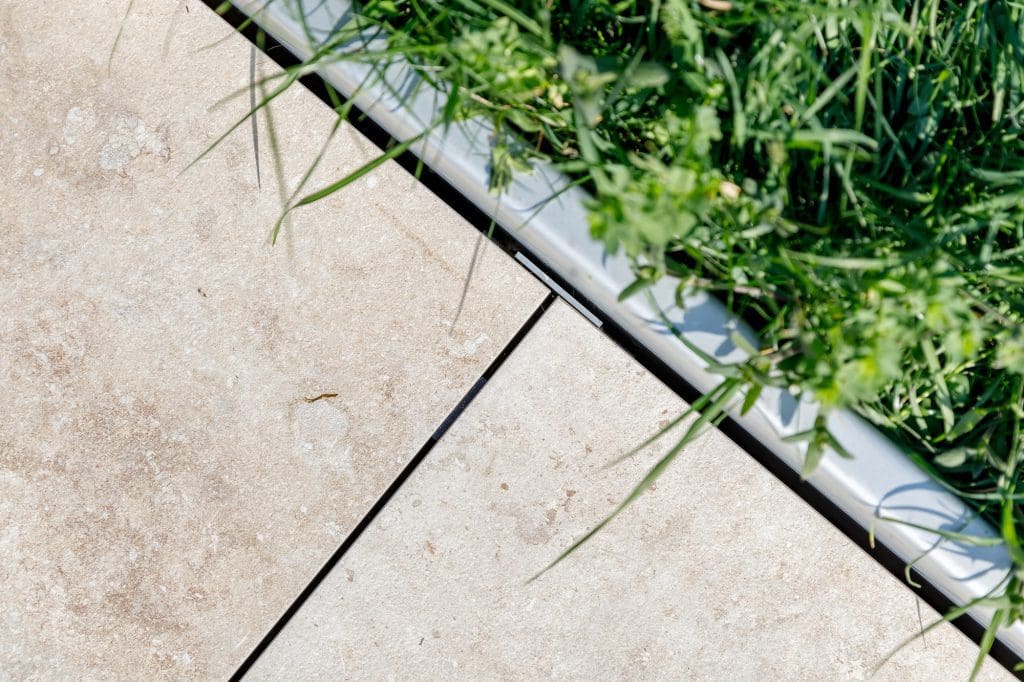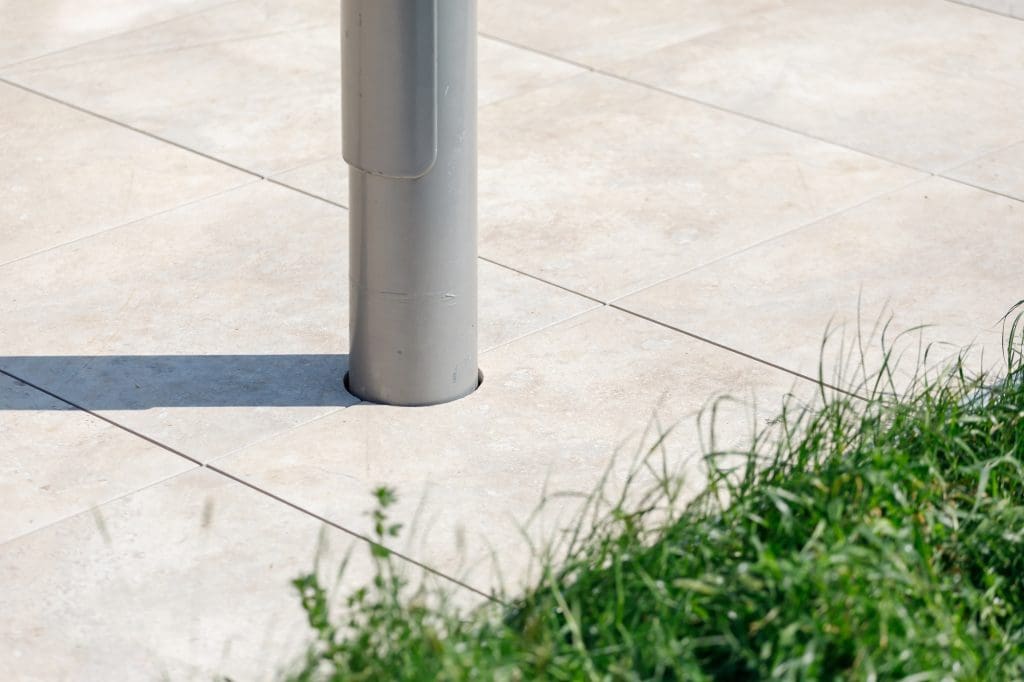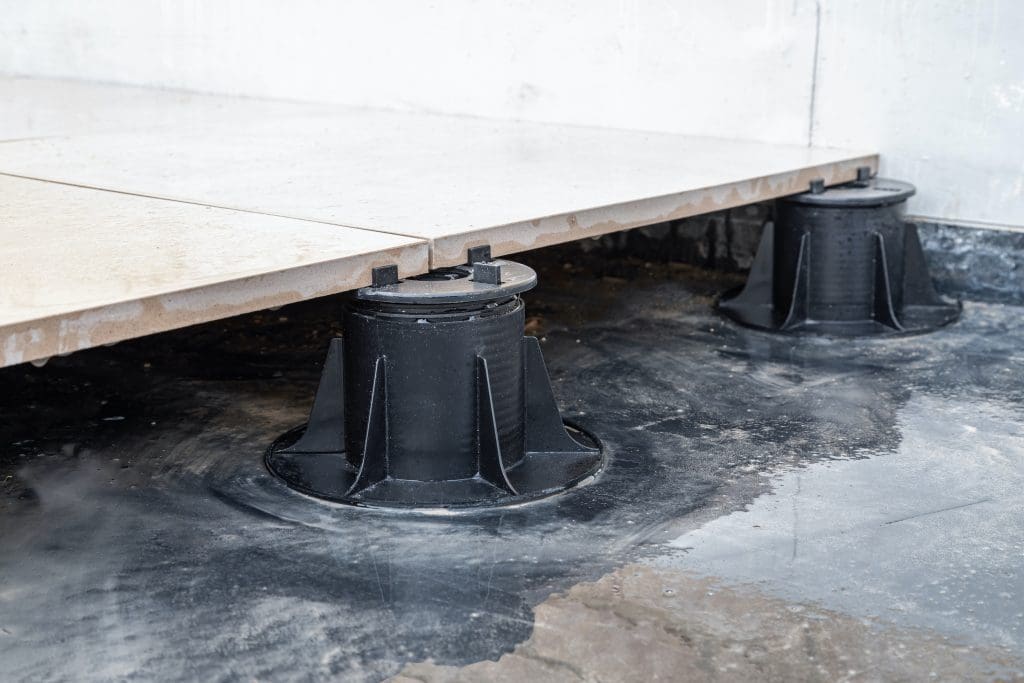Porcelain is an increasingly popular choice of paving material because of its durability, aesthetic appeal and low maintenance. It is regularly utilised for both personal and large-scale paving projects and by construction professionals in new builds and remediation works.
When selecting a paving material, you must consider the various costs associated with each option. While the cost of the material is the most obvious expenditure, there are several other crucial factors. In this article, we provide a brief overview of those factors and how each contributes to the overall cost of porcelain paving.
Material cost
The main cost is the porcelain paving itself. However, this cost can vary significantly depending on the tile manufacturer, quality, size, design, and thickness. Higher-quality tiles and intricate designs will cost more than standard options. Similarly, indoor tiles are often less expensive than outdoor tiles.

Typically, porcelain tiles for outdoor applications sit in the £30-£70 per square metre price bracket, but in some cases can cost less for very basic finishes. Though it may be tempting to opt for the budget option, consider and calculate the long-term costs first. What you save in the short term, you might pay twice over in the long term. Particularly if you choose tiles that are more prone to cracking or damage. If you are not sure, we can help you make the right choice for your project.
Compared to other common paving materials, porcelain tiles can be more expensive. That said, its performance more than justifies the cost. It is highly resistant to scratches and fading, renowned for its low maintenance requirements and appreciated for its longevity. RYNO porcelain tiles are also non-combustible and IGNO-certified, ensuring they comply with relevant building regulations and are the ideal choice for remediation projects. When you spend that little extra on porcelain tiles, you know you are investing in a material that delivers fantastic value.
Why do porcelain paving prices vary?
Porcelain is manufactured by pressing sand, clay and minerals together and then firing the result in a kiln. Often, higher-quality porcelain tiles use purified sand and minerals, which increases the price. Fluctuations in raw materials can also affect the cost of porcelain paving, though the market is relatively stable and significant swings in price are unusual.
The price may also vary depending on the porcelain tile finish. You can achieve a wide range of aesthetic results with porcelain, while performance issues, such as slip resistance, are also a product of the finish.

Calculating the cost of additional materials
Depending on your paving design, project, and application, you will need several other materials and products in addition to porcelain tiles, such as the supporting substructure that would make up the complete system: we recommend speaking with a professional who can advise and it is also worth exploring our paving & decking systems to get a bit of an idea of what’s included.
Factoring in site accessibility
If the installation site is difficult to access or requires special equipment or permits, it can impact the overall cost. Difficulties in transportation or limitations on working hours may result in additional expenses.

Making sure maintenance & repairs are considered
While porcelain paving is known for its low maintenance requirements, you must also consider the long-term costs. Cleaning, maintenance, and repairs (should any tiles get damaged) should be considered. The good news is that these costs are considerably lower than other common paving materials, as porcelain is durable, stain-resistant and requires relatively little upkeep. Furthermore, expert advice during the specification stage can determine whether tiles would need kerfing to withstand the effects of wind uplift and prevent any damage caused by adverse weather conditions.
RYNO porcelain paving solutions
At RYNO, we supply high-quality porcelain paving tiles and associated paving products that you can incorporate into your construction projects via our innovative TerraSmart® and BalcaSmart® systems. Designed for use in high-rise residential and commercial units, these systems guarantee compliance with fire regulations and feature built-in protection against common construction issues, such as wind uplift, so making sure you select the right porcelain tile that will allow kerfing, becomes a very important decision. The good news is that we can help.
Versatile and designed to the highest of standards, our world-class paving solutions can be implemented with both rail and pedestal systems, ensuring you have the freedom to realise your design vision in complete confidence that it will last the test of time and weather.





